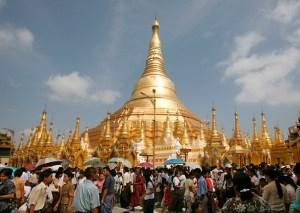
The day I decided to cover the Irrawaddy Literary Festival in Yangon (Rangoon) the BBC reported that 64 people had been killed in Burma’s western state of Rakhine, which is home to the Muslim Rohingya minority group. According to the BBC a total of 100,000 people have been displaced and some 180 killed since June 2012, when the rape and murder of a Buddhist woman by three Muslim men triggered violent retaliation.
The (very brief) backstory is that the Rohingya, who are linked by language, ethnicity and religion to neighbouring Bangladesh, are stateless. Burma considers them illegal migrants and Bangladesh wants nothing to do with them either. They live in the margins of each culture; welcome in neither.
Hence the drip-drip of disturbing news stories; images of thin, dark-skinned abject bodies; condemnations of Aung San Suu Kyi and the Burmese government for not speaking out and not doing more to protect the Rohingyas.
This media narrative is familiar because it is what we expect. Violence in remote, poor, foreign countries – especially ones whose religious and/or political arrangements we consider suspect – is presented by the Western press as inevitable.
When misfortune strikes the West – Hurricane Katrina or the London riots – it is treated as a terrible aberration. Barrels of ink and miles of column-inches express shock, outrage and upset. These things aren’t supposed to happen to us: the affluent, comfortable, light-skinned inheritors of the earth.
This is nonsense. Any country on the receiving end of media that focuses on negative stories is going to look bad. Burma has a population of 54.5 million — about the same as Great Britain. That means roughly the same number of human beings working, eating, love-making, squabbling, giving, sleeping, planning, aspiring, cheating and contemplating. The current strife in Rahkine is tragic and needs to be addressed but it is no more a true representation of Burma and its people than looting in Tottenham was representative of England and its people.
“Are you sure it’s safe?” a friend asked when I announced my plans. I’ve thought about it and my answer is: “Yes”.
I don’t believe the news version of Burma is the same as the place itself. The only way to know – and to write truthfully – is to see for myself.
